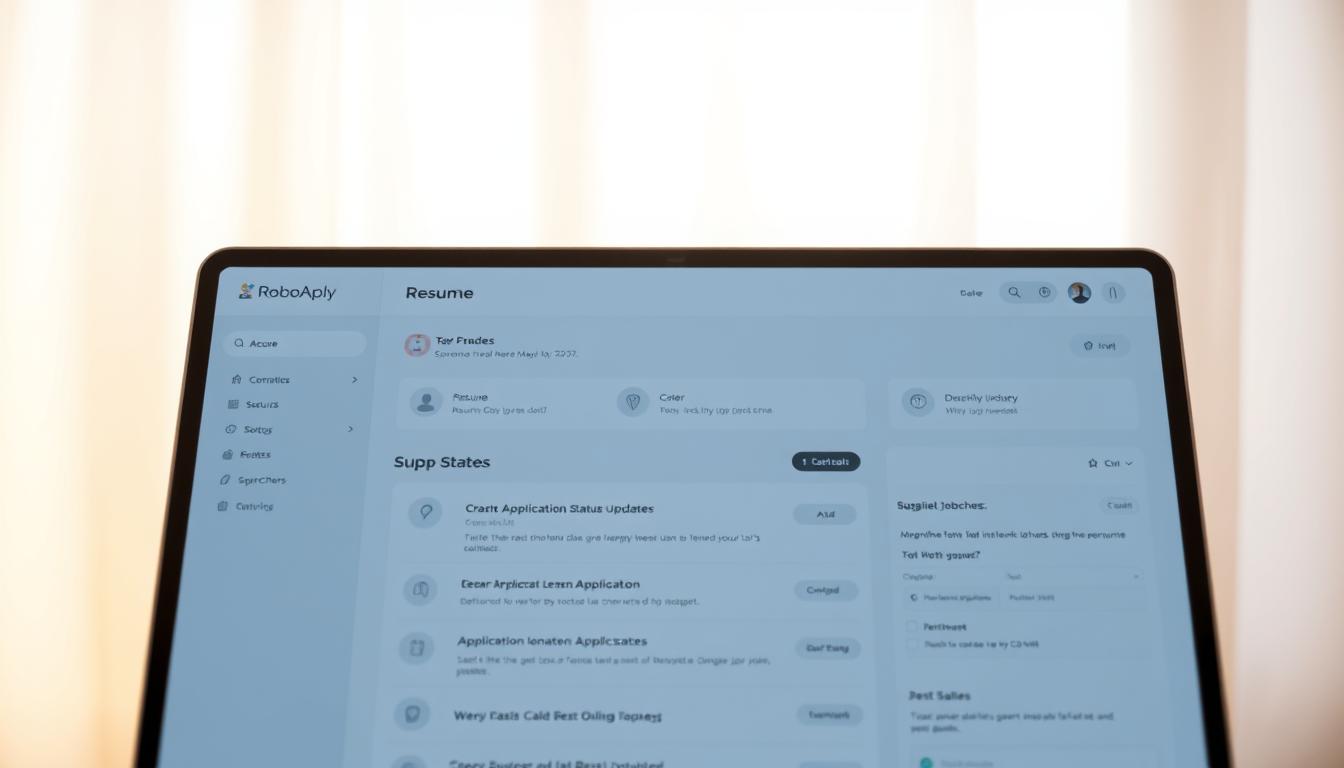Ever wondered what helps your resume stand out in a pile? It’s not just about listing your jobs. A good resume often has a special part right at the top. This part is super important because it gives a quick look at who you are and what you can do. We’re going to talk about what is an executive summary in a resume and why it’s a big deal for getting noticed.
Key Takeaways
- An executive summary on a resume is a short section at the top that highlights your best skills and achievements.
- It helps recruiters quickly see if you’re a good fit for the job without reading the whole resume.
- A well-written executive summary can make your resume more likely to get picked for an interview.
Understanding What an Executive Summary Is in a Resume

Defining the Executive Summary
So, what is an executive summary on a resume, really? Think of it as a super-short, attention-grabbing intro. It’s a brief overview of your skills, experience, and what you bring to the table. It sits right at the top of your resume, acting like a movie trailer – it needs to hook the recruiter fast. It’s not just repeating your resume; it’s highlighting the best bits, tailored for the specific job. It’s your chance to make a strong first impression and show why you’re a great fit, right from the start. It’s like your professional handshake, but on paper. A well-crafted executive summary can significantly increase your chances of getting noticed.
Distinguishing From Other Resume Sections
Okay, so how is an executive summary different from, say, a resume objective or a simple summary statement? Well, an objective statement is pretty old-school and focuses on what you want from the job. An executive summary, on the other hand, focuses on what you can do for the employer. It’s all about your relevant experience and how it aligns with the job requirements. A summary statement is broader and can be a bit generic. The executive summary is more targeted and achievement-oriented. It’s not just a list of skills; it’s a concise story of your career highlights and how they make you the ideal candidate. Think of it this way:
- Objective: "Seeking a challenging position where I can utilize my skills…"
- Summary Statement: "Experienced professional with skills in…"
- Executive Summary: "Results-driven professional with 10+ years of experience in project management, consistently delivering projects under budget and ahead of schedule. Proven ability to lead cross-functional teams and implement innovative solutions to drive business growth."
The executive summary is your chance to showcase your unique value proposition right at the top of your resume. It’s about making a strong, immediate impact and demonstrating why you’re the perfect fit for the role.
It’s about making a strong, immediate impact and demonstrating why you’re the perfect fit for the role. Don’t forget to update your LinkedIn headline to match!
Why an Executive Summary Matters for Your Resume

Capturing Recruiter Attention Quickly
Let’s be real, recruiters are busy. They’re sifting through piles of resumes, often spending just a few seconds on each one. Some studies say as little as six seconds! That’s not a lot of time to make an impression. An executive summary acts as a hook, grabbing their attention right away. It’s your chance to showcase the most important and relevant information upfront, making it easier for them to quickly assess your fit for the role. Think of it as the trailer for your professional movie – it needs to be compelling enough to make them want to watch the whole thing. It’s about making a first impression that counts.
Highlighting Key Qualifications and Achievements
Your resume is a comprehensive document, but an executive summary allows you to cherry-pick your most impressive qualifications and achievements. Instead of making the recruiter dig through pages of information, you present them with a concise overview of what you bring to the table. This is where you highlight your skills, experience, and accomplishments that directly align with the job requirements. It’s not just about listing what you’ve done, but showcasing the impact you’ve made. Think numbers, think results, think how you’ve added value to previous employers. It’s about showing, not just telling. A well-crafted summary ensures your qualifications stand out.
Consider this:
- Quantify your achievements whenever possible (e.g., "Increased sales by 20% in one year").
- Focus on the skills and experiences that are most relevant to the job description.
- Use strong action verbs to describe your accomplishments.
An executive summary is your opportunity to control the narrative and present yourself in the best possible light. It’s about making a strong case for why you’re the perfect candidate, right from the start.
Tailoring Your Summary to the Job Application
This isn’t a one-size-fits-all situation. A generic executive summary is as good as no summary at all. You need to tailor it to each specific job application. Carefully review the job description and identify the key skills, experience, and qualifications the employer is seeking. Then, customize your summary to highlight those specific areas. This shows the recruiter that you’ve taken the time to understand their needs and that you’re genuinely interested in the position. It’s about demonstrating that you’re not just sending out the same resume to every job posting, but that you’re a thoughtful and strategic applicant. This is especially important for a creative marketing resume.
Crafting an Effective Executive Summary for Your Resume

Key Elements of a Strong Executive Summary
So, you’re ready to write this thing? Great! A killer executive summary isn’t just about listing skills; it’s about painting a picture of who you are professionally and what you bring to the table. Think of it as your elevator pitch in written form. It needs to grab attention immediately.
Here’s what you should aim to include:
- A concise overview: Start with a brief statement of your years of experience and core competencies. Are you a seasoned project manager? A marketing guru? State it clearly.
- Quantifiable achievements: Don’t just say you’re good at something; prove it. Use numbers to showcase your impact. Did you increase sales by 30%? Did you cut costs by 15%? These are the details that matter. Make sure you highlight key achievements.
- Keywords: Sprinkle in relevant keywords from the job description. This shows you understand what the employer is looking for and that you’re a good fit. It also helps your resume get past those pesky applicant tracking systems (ATS).
- A touch of personality: While professionalism is key, don’t be afraid to let your personality shine through. What makes you unique? What are you passionate about? A little bit of personal flair can go a long way.
Remember, the goal is to make the reader want to learn more about you. Your executive summary should be compelling and leave them eager to dive into the rest of your resume.
Tailoring Your Summary to the Job Application
This is where many people drop the ball. A generic executive summary is about as useful as a screen door on a submarine. You must tailor your summary to each job you apply for. I mean, seriously, it’s important.
Here’s how to do it:
- Read the job description carefully: Identify the key skills, qualifications, and experience the employer is seeking. What are their pain points? What are they hoping to achieve with this role?
- Match your summary to their needs: Highlight the skills and experiences that directly address the employer’s requirements. Use their language and emphasize the areas where you excel. This is how you write an effective CV summary.
- Show, don’t just tell: Instead of simply stating that you have a particular skill, provide a brief example of how you’ve used it to achieve results. For example, instead of saying "Excellent communication skills," say "Successfully presented complex technical information to non-technical stakeholders, resulting in improved project alignment."
- Keep it concise: Aim for 3-5 sentences. Recruiters spend only a few seconds reviewing each resume, so make every word count. You want to craft a resume that gets noticed.
Here’s a quick example:
Let’s say you’re applying for a marketing manager role that requires experience in social media marketing and content creation. A tailored summary might look like this:
"Results-driven marketing professional with 8+ years of experience in developing and executing successful social media campaigns. Proven ability to increase brand awareness and drive engagement through compelling content creation. Increased social media followers by 40% and website traffic by 25% within six months. Seeking to leverage expertise in social media marketing and content strategy to drive growth for [Company Name]."
Making a great summary for your resume is super important. It’s like a quick ad for you! If you want to learn how to make your resume shine and get noticed, check out our website. We have easy tips to help you get that dream job faster.
Conclusion: Wrapping It Up
So, there you have it. An executive summary on your resume isn’t just some extra bit of writing; it’s a really important part of your job application. Think of it as your chance to make a good first impression, to quickly show what you’re good at and what you want to do next. Taking the time to write a clear, short summary can really help your resume stand out. It makes it easier for hiring managers to see why you’re a good fit, right from the start. So, don’t skip this step; it can make a big difference in your job search.
Frequently Asked Questions
What’s an executive summary on a resume?
An executive summary is a short, powerful paragraph at the top of your resume. Think of it as your elevator pitch, telling a hiring manager in a few sentences who you are, what you’re good at, and what you want to do next. It’s especially useful for people with lots of work experience.
Why do I need an executive summary?
It’s super important because most people who hire only spend a few seconds looking at each resume. A good executive summary grabs their attention right away, making them want to read more. It quickly shows them why you’re a great fit for the job.
How do I write a good executive summary?
To make a good executive summary, keep it short and to the point. Focus on your biggest achievements and skills that match the job you’re applying for. Use strong action words and numbers to show your success. Don’t just list duties; show what you accomplished.


















